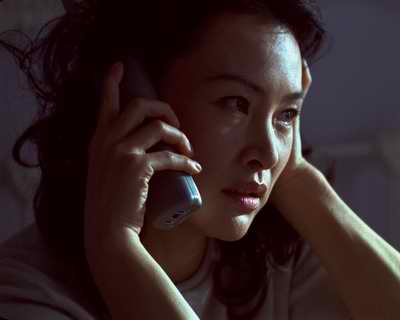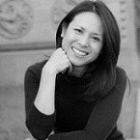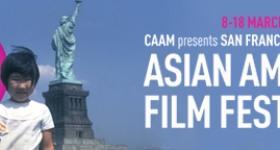
For those of you who came to the Opening night movie last night, here's your chance to give your opinions some air time. Again, no proper review from me. Is it that I'm just lazy? Maybe. Whatever it is, I'm jumping to the fun part: the So What'd You Think?
Of course, I always hate it when after a movie someone actually comes out and asks me that first, because if I say I liked it and then it turns out my viewing partner didn't, then I feel like an idiot. But since this is my blog, *I* get to ask first. I'll share some of the comments/ questions my friends and I threw around afterwards, though, as diving boards.
-- Americanese or American Knees? For those of you who've read the book too, how do they compare to you? Some of my friends noted that the casting of Allison Sie, for one, made for a very different Aurora than we'd pictured from the book -- and I for one liked her better in the movie. This may be related to the next question, which is...
-- American Knees is a straight Asian male fantasy of the ideal Asian man and his ideal Asian female partner (Aurora as luscious young hapa beauty, Raymond as Asian man repeatedly able to sleep with white women) -- agree or disagree? Would you say the same or different about the movie? More or less texture & traction to the characters?
-- At the Q&A session after the movie, someone from the audience asked (and was never answered) about ethnic considerations in the casting. Namely, how can the AsAm community protest careless ethnic casting in Memoirs of a Geisha, when in our own films we cast Asians interchangeably? Joan Chen as a Vietnamese woman, Sab Shimono & Chris Tashima as Chinese father & son? oo, good question.
-- My favorite part of the movie was Joan Chen. A friend of mine came up to me during the party and swore that he thought she had managed to channel a Vietnamese woman on camera. Whether she gave a terrific performance as a Vietnamese woman, I don't know; I was aware of her as Joan Chen the entire time, and frankly I don't know any women of any ethnicity that remind me of Joan Chen. So I was smitten by the vividness of the character & her performance. But anyway, since she's my favorite I picked her picture. Your favorite?
-- Anything else you care to toss in the discussion mix, go for it.










Comments